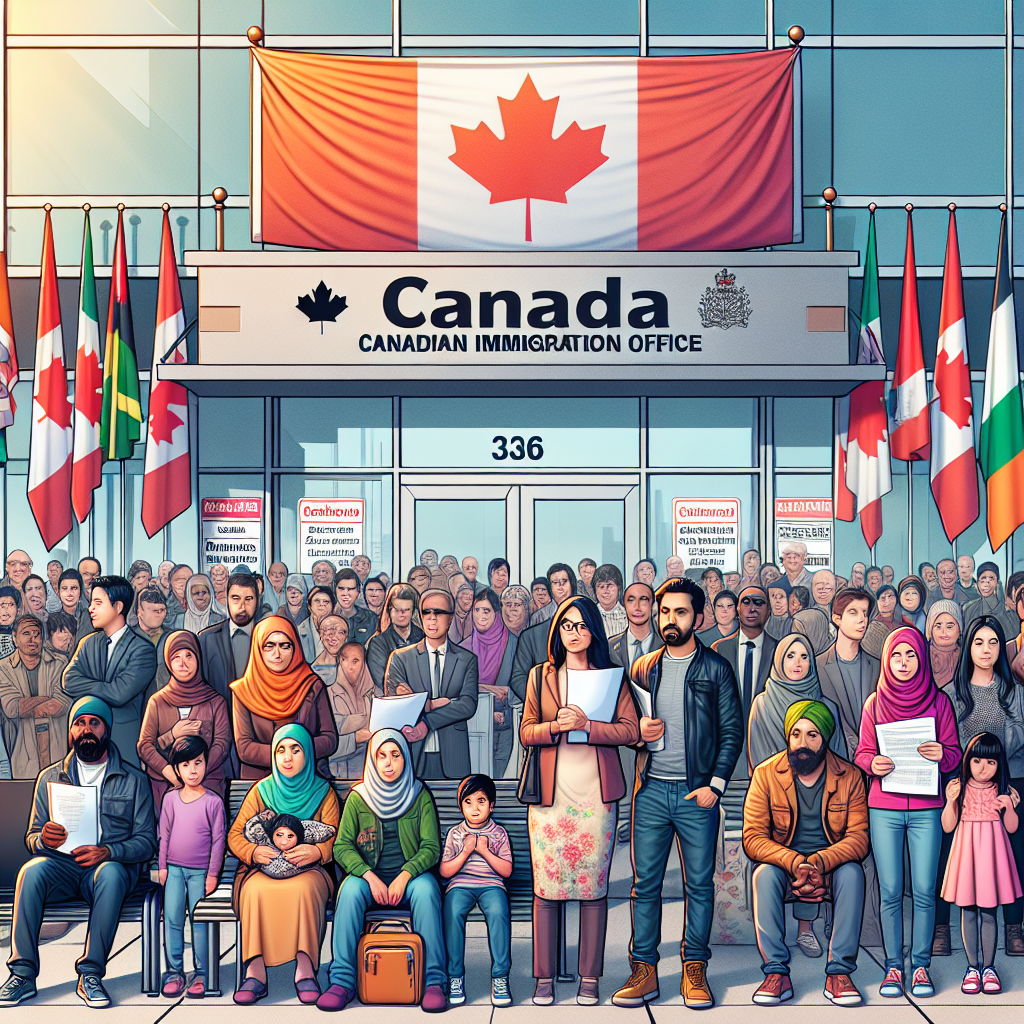Canada’s Visa Backlog Hits 1.1 Million, Causing Major Delays

Canada’s Immigration Backlog: A Growing Challenge
As of late 2024, Canada is grappling with a staggering immigration backlog that has reached 1.1 million applications, significantly exceeding the service standards set by Immigration, Refugees, and Citizenship Canada (IRCC). This surge is particularly evident in the processing of citizenship, permanent residency (PR), and temporary residency (TR) applications, where delays are becoming increasingly pronounced.
Key Statistics:
- Total Applications Being Processed: Over 2.45 million
- Backlogged Applications: 1.1 million (an increase of 1.73% in just August)
- Pending Citizenship Applications: 38,100 (slightly down by 1.29%)
- Pending Permanent Residency Applications: 305,200 (up by 1.46%)
- Pending Temporary Residency Applications: 753,700 (up by 2%, with a notable 13.44% increase since July)
The sharp rise in temporary residency applications is attributed to an influx of temporary workers and international students, placing immense pressure on the system. Despite the IRCC’s efforts, backlogs remain pervasive across all categories.
The Ripple Effects of Delays
The implications of this backlog extend beyond mere inconvenience:
- Labor Market Impact: Industries such as technology and healthcare are facing acute labor shortages, as skilled workers are unable to enter the workforce promptly.
- Family Reunification Challenges: Lengthy wait times are causing significant emotional stress for families seeking to reunite, leaving many in a state of uncertainty.
- Financial Strain: Applicants experience financial uncertainty while waiting for their applications to be processed, complicating their ability to plan for the future and integrate into Canadian society.
Looking Ahead: Forecasts and Goals
The IRCC has set ambitious targets to reduce the backlog and improve processing times. By early 2025, the government aims to stabilize the immigration system and address the growing demand. However, forecasts indicate that while some categories may see a slight decrease in backlogs, the overall challenge persists:
- Citizenship Backlogs: Expected to drop to 16% by November.
- Temporary Resident Visas (TRVs): Forecasted to decline from 72% to 59%.
Yet, despite these projections, the IRCC is still striving to meet its goal of processing 80% of applications within established timelines.
A Unique Perspective
While the statistics paint a grim picture, it’s essential to recognize the resilience of Canada’s immigration system. The influx of applicants reflects the nation’s continued appeal as a destination for skilled workers, students, and families. As Canada grapples with these challenges, it also presents an opportunity for systemic reform.
Innovations in technology, such as AI-driven processing systems, could streamline application reviews, while policy revisions might enhance the efficiency of immigration pathways. Moreover, collaboration with stakeholders, including businesses and community organizations, could lead to more targeted solutions that address labor shortages while supporting the integration of newcomers.
Conclusion
Canada’s immigration backlog poses significant challenges for individuals, families, and the economy. As the IRCC works toward mitigating these delays, it is crucial for applicants—especially those from heavily impacted regions like India—to remain informed and patient. The ongoing dialogue about potential reforms and improvements could ultimately lead to a more robust and responsive immigration system, one that continues to uphold Canada’s reputation as a welcoming haven for those seeking new opportunities.
For updates on visa application processes, work permits, and pathways to permanent residency, stay connected with reliable news sources and community groups.



